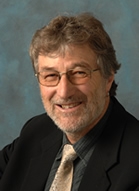International research project asks: What makes a good science teacher?
Research news
An international research study will examine whether science teachers overseas really do it better, or just differently.
The research team which includes Deakin University’s Chair of Science Education, Professor Russell Tytler, Dr Peter Hubber and Dr Gail Chittleborough will look at science teaching in primary classrooms in Germany, Taiwan and Australia and identify the best practices of each. It has been funded by the Australian Research Council.
It was one of a record four ARC grants won by the University’s School of Education.
Professor Tytler, who has researched and written extensively on student learning in science, student reasoning in science, public understanding of science and curriculum policy and development said the impetus for the study had occurred by chance at an international seminar in China.
“Germany were quite worried about their results in the OECD Programme for International Assessment (PISA) tests,” he explained.
“Taiwan, meanwhile is one of the high-performing countries and the question arose what are they doing differently and are there cultural factors within this.”
“Australia does quite well in PISA and we were keen to be involved because there is a lot to be learned especially from how other countries frame their teaching and their learning as well as define best practice.
“Such a study gives you a sense of what is possible in science education, particularly the level of higher order thinking that goes on.”
Professor Tytler said the researchers would capture the teachers and the students on video during the lessons.
“We have used this method before in Australia, and it will be interesting to see how it fares in a cross national setting,” he said.
“We have found video gives you a sense of how the teachers think about and support their students in the classroom and you can give the interactions between the teacher and the student much more in-depth consideration.”
Professor Tytler said each country would choose those teachers who were recognised as good practitioners.
“The samples will represent the cultural norms of good practice in the country and we expect it to highlight the differences in style between the countries.
“From preliminary observations for instance, Taiwanese classrooms can be very busy and noisy, there are not rows of children sitting learning passively”. “It is quite competitive, the students leap up and answer.”
The complete research team : Professor Russell W Tytler, Professor Mark W Hackling, Dr Peter J Hubber, Dr Gail D Chittleborough, Dr Karen J Murcia, Professor Dr Joerg Ramseger, Professor Hsiao-Lan S Chen, Professor Chao-Ti J Hsiung.
The other ARC successes were:
- Leadership in entrepreneurial universities: cross-national investigations of engagement and diversity, Professor Jill A Blackmore, Professor Susan A Wright, Professor Nelly Stromquist, Associate Professor Peiying C Chen, Associate Professor Hildegard Macha
ARC Linkage Round 1, 2011 Funding:
- Moments in Time: Investigating a National History Curriculum in Early Childhood Settings and Primary Classrooms, Associate Professor Mary Dixon, Dr Paul F Reitano, Dr Kim A Senior, Dr Nicole C Green, Associate Professor Anthony I Taylor
- Investigating the effectiveness of teacher education for early career teachers in diverse settings: A longitudinal study, Professor Diane E Mayer, Professor Brenton Doecke, Professor Richard J Bates, Associate Professor Mary Dixon, Associate Professor of Alex Kostogriz, Associate Professor Andrea C Allard, Associate Professor Simone J White, Dr Bernadette M Walker-Gibbs, Dr Leonie O Rowan, Professor Claire M Wyatt-Smith.
Further information:
Share this story
 Professor Russell Tytler
Professor Russell Tytler
